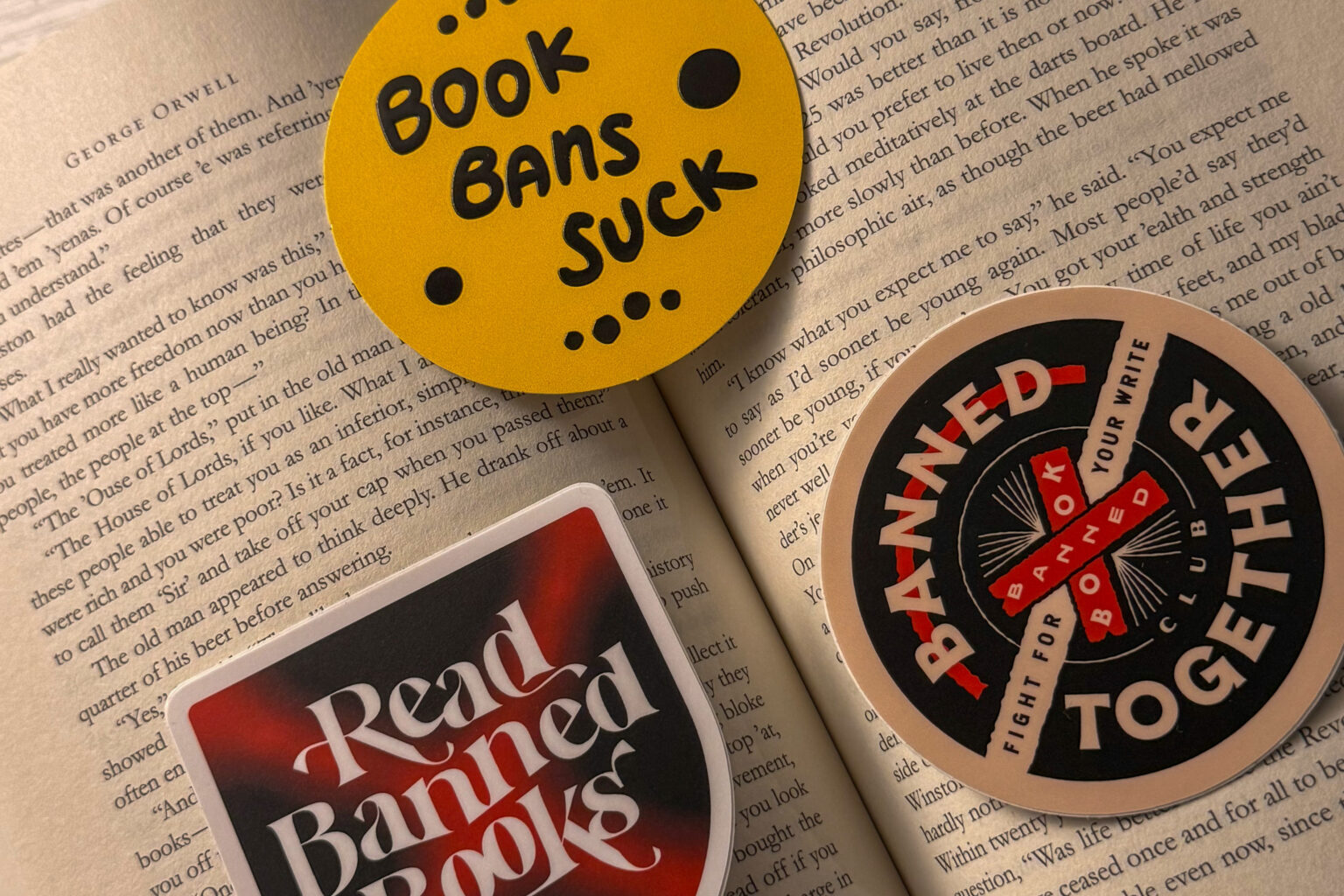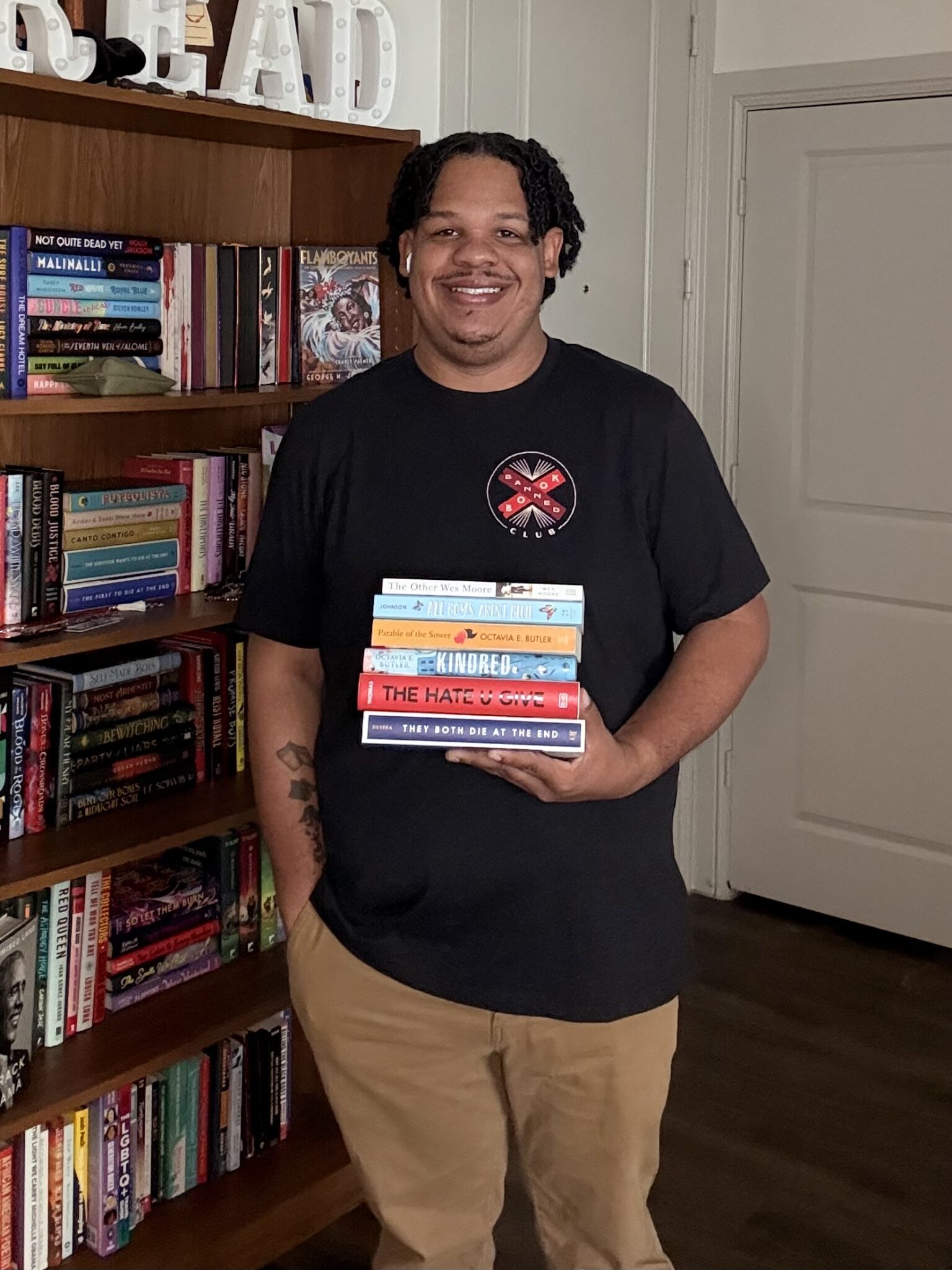Photo courtesy of Jay Guillory.
Banned Books Week is Oct. 5-11 where people across the country celebrate and highlight the ability to have free and open access to information. Particularly, raising awareness about challenges to literature and advocating for authors who can no longer advocate for themselves.
Local Whose Books part-time bookseller and content creator behind Black Boys Read Jay Guillory has been using his platform this week to do just that.
“This is a time where we highlight these books that are being banned, uplift the voices of these authors,” he says. “But also getting people to understand these things are happening. These books are being challenged. These books are being banned and students and communities, depending on where you’re at, this might not be available at your public library and there’s a reason why.”
Books are banned for a variety of reasons, from including topics on race and gender to sharing stories of violence, at public institutions like schools and libraries. However, a majority of these bans affect books written by LGBTQ+, as well as Black or brown individuals, Guillory said.
While one particular parent may not want that book for their child, it becomes a ban for everybody, and rather than viewed as censorship people view it as potential indoctrination, he said.
“Why should one parent dictate what the whole school, or if it’s the case of a public library, what the whole city or county or whatever the public library is serving, can read?” he said.
Furthermore, Guillory said that the push of book bans reflects the moment in time and that book banning is not just something that popped up out of nowhere.
“If you have ever been to a Holocaust museum and they’re kind of going through the history of the Holocaust, I’ve been to the one in D.C., they did book burnings in Germany during that time period,” he said. “This is nothing new. It’s just to me, I think sometimes some stories … people don’t want certain stories to be told just because it makes them feel uncomfortable. With uncomformtability comes the requirement to grow and some people are not interested in growing maybe.”
Books that have been banned are often books Guillory said he’s loved. From Octavia Butler’s Kindred and Parable of the Sower to All Boys Aren’t Blue by George Johnson, he says it is important to uplift these books because they’re good, some having earned honors such as being named to The New York Times Best Sellers list.
“People need to read banned books because there’s a reason why they’re banned,” he said. “And I think everyone should be able to form their opinion as to why would someone not want you to read this book.”

